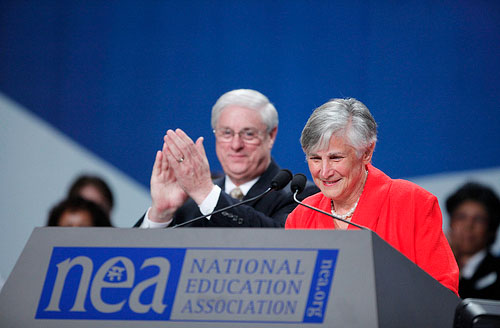
Making education a focus during the 2012 election debates is our ongoing goal in The Global Search for Education series. Today I am honored to share the perspectives of Diane Ravitch as we continue the discussion of the issues that we believe will be a priority for the next President of the United States.
Diane Ravitch is Research Professor of Education at New York University and a distinguished historian of American education. She is a senior fellow at the Brookings Institution in Washington D.C. She served as Assistant Secretary of Education for Research and Improvement in the administration of President George H.W. Bush and was appointed to two terms on the National Assessment Governing Board by the Clinton administration. Ravitch is the author or editor of over 20 books on education, including the national bestseller, The Death and Life of the Great American School System: How Testing and Choice Are Undermining Education (Basic Books).
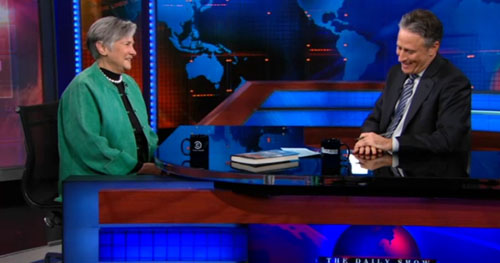
What should the role of federal government be in K- 12 education? How much more funding should be given to education reform and in what major areas should it be spent?
The federal government has certain roles that have been consistent since the passage of the Elementary and Secondary Education Act in 1965:
First, to equalize spending for the neediest districts, especially those that enroll children who are poor.
Second, to protect the civil rights of children.
Third, to provide accurate and timely information about the condition and progress of education, including support for the no-stakes National Assessment of Educational Progress.
Fourth, to fund the education of children with disabilities.
Fifth, to aid low-income students who enroll in college.
The basic mission of the U.S. Department of Education is to support equality of educational opportunity.
It is not the role of the Department of Education to foist its own unproven preferences — like evaluating teachers by student test scores or charter schools or merit pay — on states and districts.
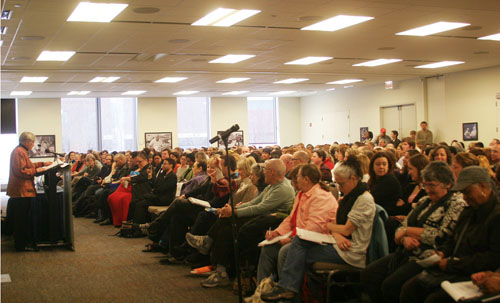
What would be your position on improving the teaching profession, including recruitment, teacher training, compensation, and assignment to low-income schools?
I would like to see higher standards for entry into schools of education. I would wish that every teacher has a four-year degree in a content area, so they are knowledgeable in the subjects they will teach, and a fifth year of study of education, including cognitive science, adolescent psychology, assessment, cultural diversity, the sociology of the family and the community, and the history, politics, and economics of education. No one should be allowed to teach who does not have a year of study that includes practice teaching and research. I would also disallow education degrees earned online. Teachers should be paid more for taking on additional responsibilities; they should not have their pay or evaluation tied to test scores of students.
Teaching should be a prestigious career. Those who enter teaching should be well-prepared and expect to make a career in education.
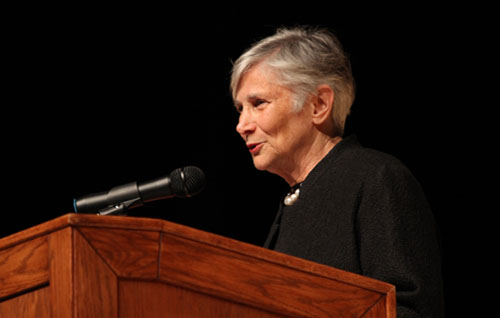
What would be your position on school choice, including charter schools and their expansion, private schools, vouchers, and investment in inadequately staffed and facilitated low-income schools?
I oppose school choice outside the public school system. I oppose private management of public schools. I oppose for-profit schools. I fear that in time we will see the re-emergence of a dual system of schools in our cities, with charters for the able and public schools serving the rejects from charter schools. I see district after district where charters drain funding and top students away from the public schools. It makes no sense. I oppose vouchers. I believe that it is a public duty to provide a good public school with adequate resources and a rich curriculum in every neighborhood. Every school should have the staff and resources it needs to provide a full curriculum, after-school activities and appropriate services for students.
What would be your strategy to address the domestic and international achievement gaps, including your position on early childhood education, standardized testing, on-line modular education, and teacher/principal accountability?
I think we should stress early childhood education. The US lags far behind the rest of the world in establishing high-quality early childhood education. I think we should minimize the use of standardized testing, use it only for diagnostic purposes, not for accountability, not for rewards or punishments or school closings. Standardized tests reflect gaps, they don’t close them. The online schools have very poor results and do nothing to improve achievement. The best way to improve achievement is to improve the standard of living of our poorest children while improving the curriculum at all schools and the professional supports for teachers. One important reform would be to make sure that every child has a regular medical check-up, that every school has access to a health clinic and/or a school nurse. In the schools that serve the neediest children, class sizes should be reduced to no more than 20.
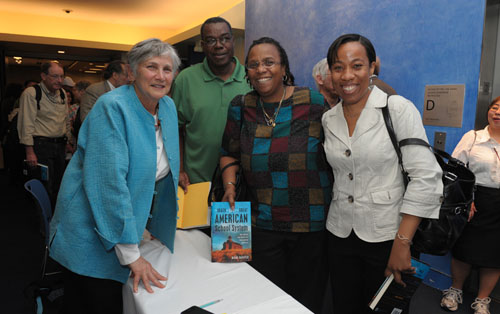
What would be your position on curriculum reform, including the role of the arts, the treatment of ethics, and the adoption of blended online learning?
I believe that every school should have a full and balanced curriculum, with a rich arts program, history, civics, geography, mathematics, the sciences, foreign languages, and literature. Every school should have a library with a full range of resources, including computers and the Internet.
I would ban for-profit schooling.
What would be your position on how to make college affordable for more qualified low income students?
The federal government should increase subsidies for college for low-income and middle-income students. Education is a basic human right and it should not be denied because of inability to pay. Young people should not be buried in debt when they finish college. We can’t expect to increase college enrollment rates if young people cannot afford to go. I also think the government should be extremely vigilant in policing for-profit colleges, where the attrition rates are extremely high and young people drop out with heavy debt and no education.
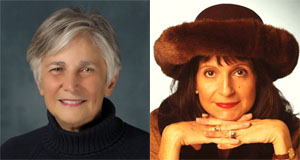
Photos courtesy of Jack Miller and Diane Ravitch.
For more articles in The Education Debate 2012 series: The Education Debate 2012 — Howard Gardner, The Education Debate 2012 – Richard Wilson Riley, The Education Debate 2012 — Andy Hargreaves, The Education Debate 2012 — Linda Darling-Hammond
In The Global Search for Education, join me and globally renowned thought leaders including Sir Michael Barber (UK), Dr. Michael Block (US), Dr. Leon Botstein (US), Professor Clay Christensen (US), Dr. Linda Darling-Hammond (US), Dr. Madhav Chavan (India), Professor Michael Fullan (Canada), Professor Howard Gardner (US), Professor Andy Hargreaves (US), Professor Yvonne Hellman (The Netherlands), Professor Kristin Helstad (Norway), Jean Hendrickson (US), Professor Rose Hipkins (New Zealand), Professor Cornelia Hoogland (Canada), Mme. Chantal Kaufmann (Belgium), Dr. Eija Kauppinen (Finland), State Secretary Tapio Kosunen (Finland), Professor Dominique Lafontaine (Belgium), Professor Hugh Lauder (UK), Professor Ben Levin (Canada), Lord Ken Macdonald (UK), Professor Barry McGaw (Australia), Shiv Nadar (India), Professor R. Natarajan (India), Dr. Pak Tee Ng (Singapore), Dr. Denise Pope (US), Sridhar Rajagopalan (India), Dr. Diane Ravitch (US), Sir Ken Robinson (UK), Professor Pasi Sahlberg (Finland), Andreas Schleicher (PISA, OECD), Dr. Anthony Seldon (UK), Dr. David Shaffer (US), Dr. Kirsten Sivesind (Norway), Chancellor Stephen Spahn (US), Yves Theze (Lycee Francais US), Professor Charles Ungerleider (Canada), Professor Tony Wagner (US), Sir David Watson (UK), Professor Dylan Wiliam (UK), Dr. Mark Wormald (UK), Professor Theo Wubbels (The Netherlands), Professor Michael Young (UK), and Professor Minxuan Zhang (China) as they explore the big picture education questions that all nations face today. The Global Search for Education Community Page
C. M. Rubin is the author of two widely read online series for which she received a 2011 Upton Sinclair award, “The Global Search for Education” and “How Will We Read?” She is also the author of three bestselling books, including The Real Alice in Wonderland.


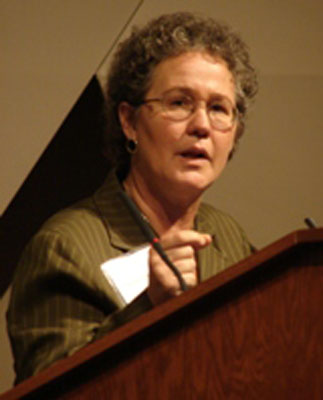
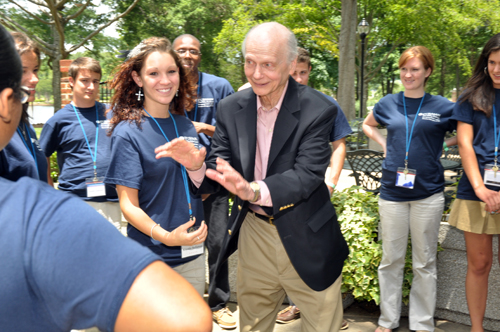
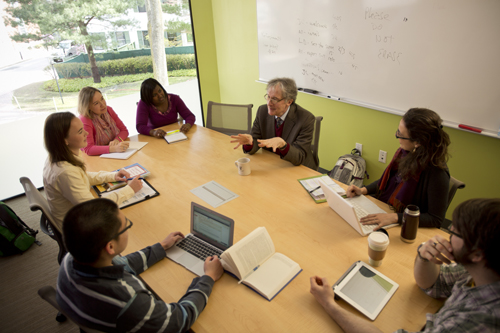
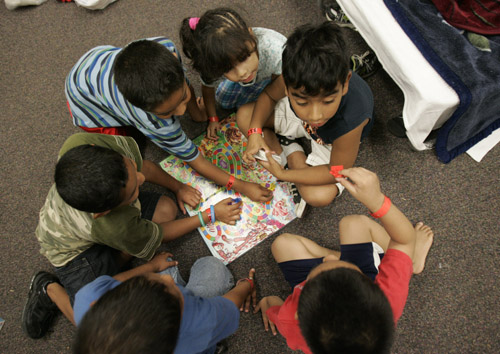
Recent Comments